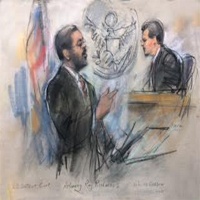Romeo Juvenile Law Lawyer, Michigan
Sponsored Law Firm
-
 x
x

Click For More Info:
-
Richards & Associates, PLLC
200 East Big Beaver Road Troy, MI 48083» view mapCriminal Defense Accomplished Criminal Defense Attorney
If you face criminal charges, you deserve an experienced defense lawyer who has a reputation for winning the tough cases.
800-844-5250
Christine G. Strasser
Family Law, Child Custody, Juvenile Law, Civil Rights
Status: In Good Standing Licensed: 34 Years
Matthew D. La Grasso
Traffic, DUI-DWI, Juvenile Law, Domestic Violence & Neglect
Status: In Good Standing
Kayleen P. Hendler
Juvenile Law, Traffic, Social Security, Divorce
Status: In Good Standing Licensed: 31 Years
Shannon Marie Smith
Juvenile Law, Federal Appellate Practice, Family Law, Criminal
Status: In Good Standing
 Ray Richards Troy, MI
Ray Richards Troy, MI AboutRichards & Associates, PLLC
AboutRichards & Associates, PLLC Practice AreasSpecializations
Practice AreasSpecializations
